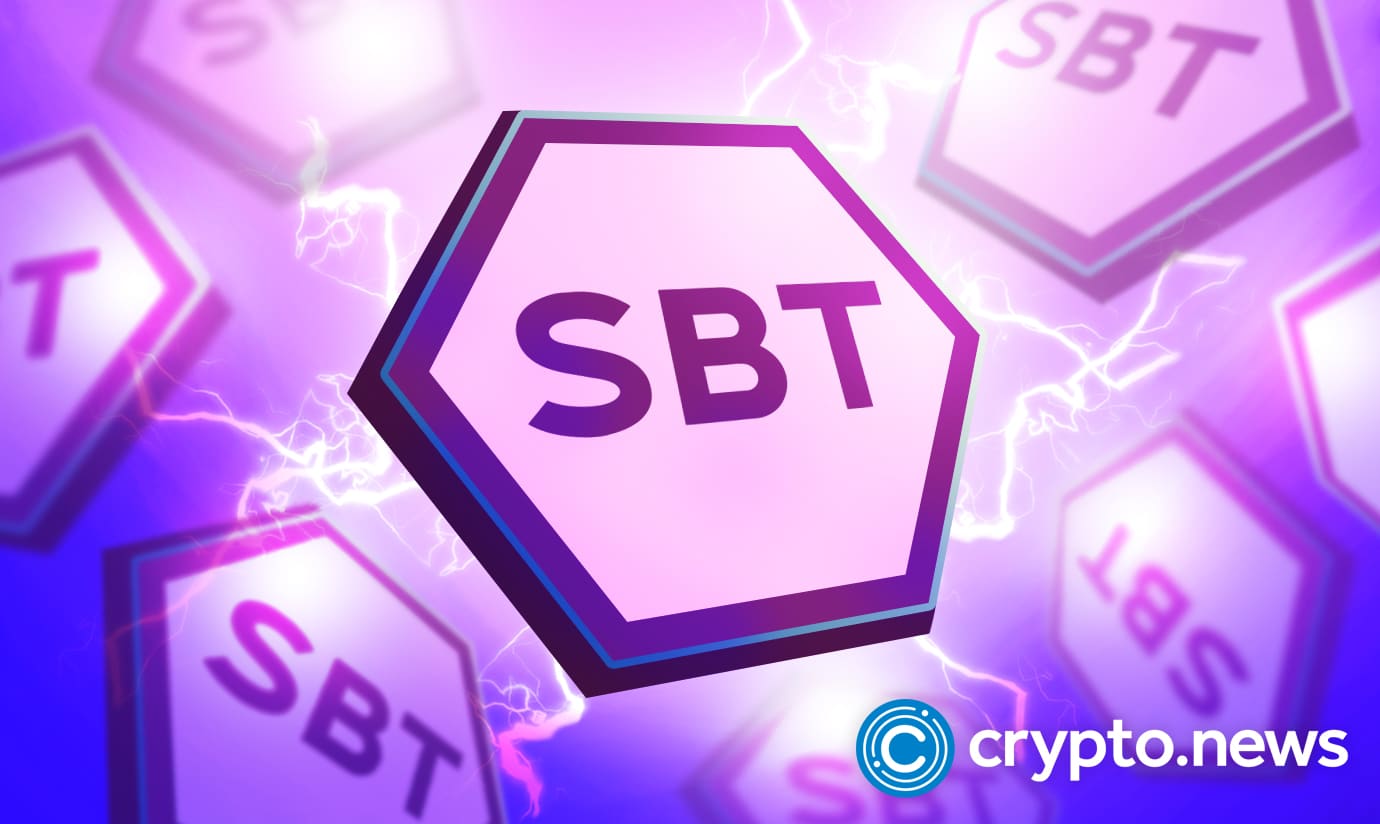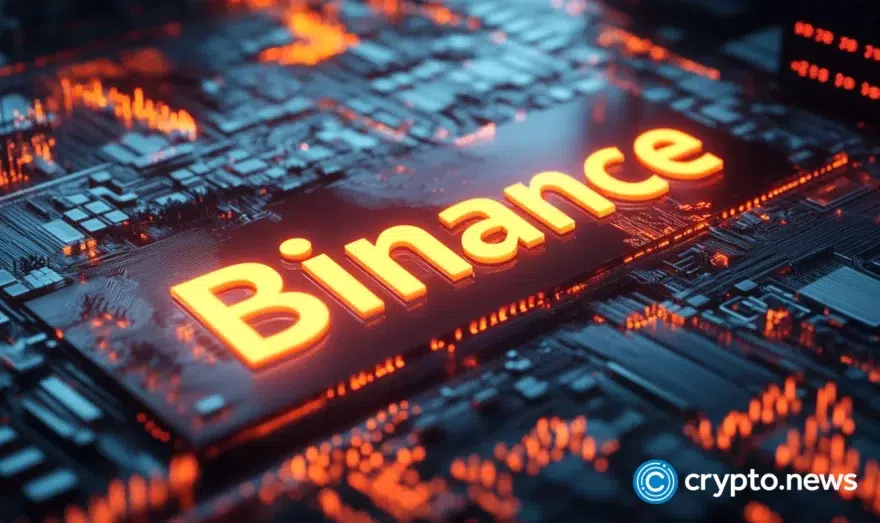Soulbound Tokens: What Are They and How Do They Work?

Soulbound tokens are tokenized assets that take the form of NFTs and are not transferrable once they have been bought and owned by an individual. They are used to perform specific tasks such as upholding digital identities.
Soulbound Tokens and NFTs
Non-fungible tokens are digital or real-world assets that prove ownership over an item. Unlike other types of blockchain assets, NFTs cannot be replicated, and, in most cases, NFT ownership of an NFT can be bought and sold.
According to a recent Twitter poll, many people who own NFTs are motivated by the desire to make money from them. Projects such as Bored Ape or CryptoPunks can sell for a lot of money on marketplaces such as OpenSea. That allows for an environment where NFTs can trade hands with the highest bidder.
What if there was a digital token that could be tied to an individual to a certain person, but could not be purchased or sold? In May 2022, three individuals, Ethereum co-founder Vitalik Buterin, lawyer Puja Ohlhaver, and economist Eric Weyl, discussed their vision for a fully decentralized society(DeSoc). Hence, the concept of Soulbound tokens addresses NFTs and other decentralized structures’ limitations.
What Is a Soulbound Token?
According to Ethereum founder Vitalik Buterin, the future of cryptocurrency is tied to Soulbound tokens. He explained that World of Warcraft inspired the “Soulbound” term.
Users cannot transfer a Soulbound token after it has been received. They are bound to you and can’t be sold or transferred. According to Buterin, only the issuer of the token can burn it. Buterin explains the accounts holding the Soulbound tokens are referred to as “Souls,” and the tokens that are held by the account are “Soulbound Tokens” (SBTs).
Picture a society where everyone possesses a Soul with SBTs representing a range of memberships, affiliations, and credentials. SBTs that represent a person’s educational background, professional experience, or writings or artistic creations, for instance, may be stored in their Soul.
In their simplest form, these SBTs can be “self-certified,” much to how we disclose information about ourselves in our CVs. Similar to how a university can provide a graduate with a certificate for completing their studies, SBTs may similarly be awarded by Souls acting on behalf of people, businesses, or organizations.
The thing to remember is that Soulbound tokens are essentially factual information about you broken down into individual NFTs stored in your private blockchain wallet.
How Do Soulbound Tokens Work?
To put it into perspective, anyone can claim that they went to Oxford by posting on their Facebook page that they got their degree from the university. However, with SBTs, Oxford’s “Soul,” their private wallet would have to grant your “Soul” your private wallet an SBT of your certificate to assert the claim.
Through this, you would be able to prove your affiliation with a group or institution by distributing your SBTs. Hence, making it incredibly difficult for people to fake their credentials.
According to Buterin and his colleagues, this could help solve some problems that plague decentralized finance, such as increasing NFT scams and theft. However, they also believe that this mechanism’s true power lies in how it prevents people from being exploited.
Trust is a huge factor that people consider when it comes to choosing an NFT artist or project. That is because, in the past, it has been known that the creators of projects such as Azuki had a history of leaving projects. With the help of SBTs, the Web3 community can now check if they can trust an individual. That will allow them to make informed decisions regarding the projects and whether it is worth indulging.
One question arises from using SBTs: what if they are transferred to the wrong person? Does the recipient remain forever with them since they are permanent?
According to the team, the answer is no. The system should feature features that allow users to hide the SBT from public view or destroy an existing SBT. However, since the system doesn’t yet exist, the exact mechanics of this feature are still unclear.
How Is It Valuable?
The Soulbound non-fungible token’s introduction highlights its application scope’s simplicity. As the ecosystem continues to develop, it will be interesting to see how these types of tokens will be used to serve various applications. The web3 ecosystem and its decentralized solutions have experienced promising growth.
The rapid emergence and growth of the web3 ecosystem have brought the focus on its various limitations in developing its decentralized solutions. These include the lack of consensus mechanisms and the energy-intensive Proof of Work. In addition, the emergence of smart contracts and public/private key cryptography has helped address various issues related to the ecosystem.
Trust is the most critical issue that the web3 landscape faces right now. Due to its applications’ high privacy and anonymity, it has to deal with various issues related to developing its decentralized solutions. That is why the ecosystem must use centralized structures to address these issues.
For instance, when it comes to the ownership of NFTs, they must use Twitter or OpenSea to prove their ownership. Also, due to the development of web2 platforms, such as Discord, DAOs can prevent Sybil attacks.
Due to the nature of the Soulbound non-fungible token, it can serve as a bridge between the various trust gaps in the web3. It can also help people and protocols develop social identities. Its non-transferable nature allows people and applications to maintain their privacy while also serving as a foundation for trust.
What Happens in Loss Cases?
The NFT community has been exposed to rampant cases of thefts and scams. Unfortunately, the possibility of your Soul being hacked or you losing your Soul address is a great concern. Hence, there have to be practical contingency plans in place to prevent theft.
In response, Buterin suggested a community-wide adoption of a concept, the “social recovery model.” This concept will allow users to establish a set of individuals or institutions as “guardians.”
These individuals or institutions can access and change the private details of a user’s wallet, should it be stolen. According to the authors, recovering a Soul’s private keys would require a member from a qualified majority of a random subset of Soul communities to consent.
Unfortunately, this doesn’t solve the issue. For instance, if a user’s relationship with their appointed guardians has broken down or they have passed away, they would be hard-pressed to recover their stolen wallet. Also, if a group of guardians decides to attack a person they’ve been falling out with, it could cause catastrophic results.
Buterin believes that a wider community can help recover stolen wallets. He claims that this could make the SBTs recovery process a little easier to recover compared to other NFTs.
Transferring SBTs Between Wallets
When it comes to transferring your SBTs, there are a few simple technical options that Vitalik has come up with:
- Store the item in a directory marked with an index, a recipient address, and a secret related to the recipient. You can then reveal this secret to an interface that will automatically scan for all the items that are related to you.
- Give each recipient their Merkle branch by publishing a hash of several items.
- You can supply a ZK-SNARK if a smart contract needs to check if you have a certain item.
Transferring an item on-chain can be done using a factory contract. This method would involve making an old item invalid and giving the new one validity using a ZK-SNARK to prove that the operation is valid.
According to Buterin, the main reason why transferability is important is that it shows how Web 3.0’s money orientation could damage the long-term sustainability of the next generation. There are various reasons to buy and sell NFTs, such as charitable organizations and supporting artists. However, we should also consider the disadvantages.
It would take a lot of time and effort to apply soulbound-ness to NFTs, but doing so might “open a much broader door to blockchains being at the center of collaborative and entertaining ecosystems, and not just about money.”
When Someone Fakes Their Soul Status, What Happens?
The SBT notion is that it is a vital part of the community, allowing people to access governance, property rights, and membership. If this is the case, what if Souls try to cheat their identity?
If an event or access is dependent on the status of a certain SBT, then a bot or human can trade these for bribes. They can then create a fake social graph to make the accounts look like they belong to real people. DAOs have also been criticized for bribery concerns. It is possible to misuse Souls for voting rights on-chain.
The ability to verify the authenticity of a community using the open-source SBT protocol can help identify inauthentic behavior. For instance, if a person claims the humanity of another Soul, then the case can be escalated and verified. On the other hand, other Souls can also initiate negative attestations to prove their legitimacy.
Other methods of policing and prevention include utilizing the MACI or ZK technology, which can be used in a particular soul community.
Use Cases of Soulbound Tokens
Despite the limitations of our knowledge about how to design and implement systems, there are still many promising use cases for SBTs.
Medical Record Management
Getting a new insurance provider or doctor can be a frustrating process. It can involve spending a lot of time on the phone to get a medical history and verify your identity through security questions, which could also be hard to remember. SBTs could eliminate the tedious process of getting a new insurance provider or doctor by allowing people to store their medical records in something like a medical Soul.
Academic Credentials
The applications of Soulbound NFT in the academic credentials field are expected to gain widespread attention. Institutions can use the platform to issue digital proof of student academic credentials, such as those issued by universities and colleges. Non-transferable NFTs, such as those issued by Soulbound, can also be used to verify the attendance of candidates.
NFT Art
NFT artists can easily link Soulbound tokens to their collections, ensuring collectors know which ones belong to them. Doing so eliminates bad actors who try to capitalize on the NFT space by selling random items in the name of famous artists.
Further, artists can issue a linked Soulbound token stored in their Soul. Consequently, NFT can vouch for the scarcity limits set by the artist by attesting an SBT’s membership in a “collection.”
Through SBTs, NFT artists and creators can build their reputations within the NFT and digital art community.
DAO Sybil Attack Protection
One of the biggest threats that a decentralized organization (DAO) faces is a Sybil attack, which occurs when an individual or group accumulates a significant amount of governance tokens and then manipulates the results of a vote. With the help of a provable reputation, a DAO can mitigate this issue by implementing multiple mechanisms. For instance, by checking for correlation between the various types of governance tokens held by its users, a project can prevent a group of individuals from influencing a particular vote and discounting accordingly.
Souldrops
New crypto projects usually involve a community effort to create new communities. They can also launch airdrops as part of their token sales. However, this process can be associated with Sybil attacks, as whales would consume most drops. On top of this, since the airdrops cannot reach the intended target audience, they are generally associated with the attack.
To solve this issue, SoulBound can provide a solution by ensuring that the drops are carried out based on the analysis of the user’s Soul. According to the whitepaper by Vitalik Buterin, SoulDrop can be used by projects focused on enhancing sustainability. For instance, if a project is focused on enhancing the sustainability of its community, then it can ensure that the governance token is associated with various sustainable activities.
Proof of Presence
For special occasions, events, online conferences, seminars, and other things, SBTs can be utilized as evidence of attendance. Additionally, the event organizer or host can convene a managed audience for their purposes by providing SBTs to the restricted individual.
Undercollateralized On-chain Lending
The traditional financial markets rely on credit to fund their operations. Due to the technical limitations of these systems, crypto projects have been struggling to solve this issue at scale. With the help of a provable reputation, through SBTs, a person can easily confirm their ability to pay back a loan.
Digital CV
Through the Soulbound token, people can create a digital CV that showcases their academic achievements and work experience. It can help speed up the hiring process and ensure the candidate is qualified to work for the company. Unfortunately, it can be hard to check the validity of a candidate’s claims due to their academic credentials.
In such cases, a digital CV can help prove that a candidate has the necessary skills to work for the company. With the help of non-transferable NFTs, employers would no longer have to rely on a candidate’s academic records to make informed decisions. Instead, they could easily see if a candidate has the necessary skills and experience to work for the company.
Decentralized Key Management and Recovery
Most web3 participants rely on various centralized wallets to store their assets, such as those operated by Binance and Coinbase. These platforms aren’t able to give users control over their assets.
Current key management systems are not user-friendly. Multi-sig recovery is a good solution but has security and ease-of-use issues. Another approach is social recovery, which involves a person’s trusted relationship. This solution works similarly to the one offered by the SBT.
SBT aims to create a robust key management system that ties Soul recovery to its communities. That eliminates third-party software and allows users to have real-time relationships with their assets.
These types of communities could also include off-chain entities such as churches, universities, and employers, as well as other on-chain entities such as DAO. In a community recovery model, the members of a given community would have to give their consent to recover a Soul’s private key.
According to Vitalik, the ability to communicate with Souls would be similar to that of social recovery. It would allow users to confirm their shared secrets or engage in conversations. Unlike on-chain bots or computation over SBTs, these communication methods require greater bandwidth (the ability to carry richer “information entropy”).
How To Invest in SBTs
Although the concept of SBTs is still in its infancy, there are several steps that you can take to become a part of the global crypto market.
Integrate SBT-Related Infrastructure (Within Your Business)
You can create a company that supports the use or issue of Soulbound tokens, or you can serve as an institute that issues them to customers or workers. If you have an existing business, you can create a unit supporting the adoption of Soulbound tokens. That could involve establishing a structure that enables users to verify their authenticity. You can also conduct Souldrops to boost the use of Souls.
Back SBT-related Startups
One of the most important factors that investors should consider when investing in a startup is its goal of building products that support the use of Souls. As the adoption of these technologies increases, there will be more opportunities for startups to develop products to boost the use of Souls.
You can also invest in these companies through funding or buying shares. By partnering with the firm, you can also help promote its adoption of the SBT concept.
Drawbacks to SBTs
Aside from being able to represent our personal information, the tokens also have various utility functions. These include sending and receiving exclusive airdrops, aka “Souldrops,” as well as event tickets and other benefits for specific community members. For instance, an organization can easily send reunion tickets to all alumni who graduated from a certain period.
Meanwhile, the opposite is also true. Bad actors could use various methods to identify, target, and harm members of a specific community. For instance, they can target specific individuals and groups using a certain type of token. That could lead to various issues, such as denying medical care or voting rights.
According to the paper’s authors, a database of SBTs containing all of the disfavored social groups could be used to automate the redlining of certain groups. It could also target them for physical and cyber attacks. That is why the authors recommend that users have a way to hide or discard their SBTs if need be eventually.
The Future of Soulbound Tokens
The white paper states that the foundations of a decentralized society will be laid by the Souls and the SBTs. This concept describes a transformative future where people can build their own Web3 identities through social interactions and human relationships.
Soulbound tokens establish a reputation and provenance in Web3. That could help prevent people from sabotaging the ecosystem by lying about their achievements or buying status. It could also help minimize the number of identity fraud cases due to impersonation and theft.
According to Eric Weyl, one of the paper’s authors, the first Soulbound token (SBT) could be available early in 2022. In September 2020, Binance, a cryptocurrency exchange, announced that it would be issuing Soulbound tokens to all its users who have already completed the Know Your Customer (KYC) requirements.
Despite the various advantages of decentralization, privacy remains a challenge for the decentralized society. With the potential to operate on a large scale, Soulbound tokens could be a valuable asset for large-scale utility.
Final Words
The SoulBound project is regarded as a promising solution to various web3 issues. It is an adaptation of social identity that we can use online. However, it is still in its early stages of development and is not yet ready for general use. Hence, it will take some time to enjoy its benefits, including the smooth NFT distribution and creation and the ability to perform DeFi lending.
Despite the criticisms about its potential, the SoulBound project is still considered promising. It shows that the web will not be as inhumane or robotic as some claim. People’s identities are still necessary in the virtual world.














